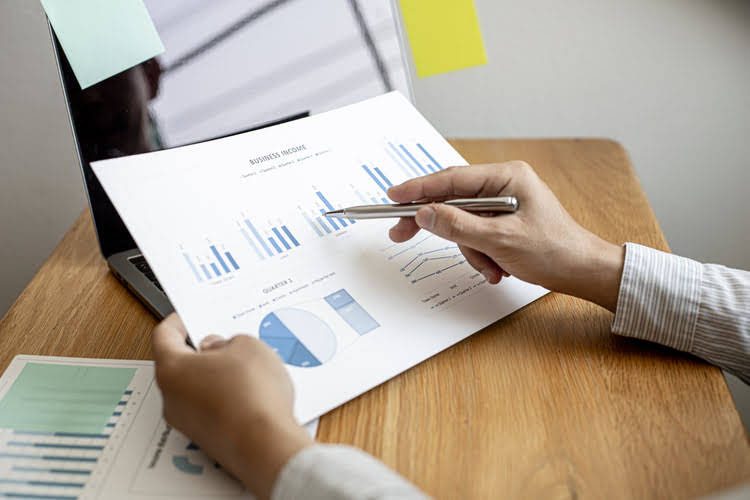Content

Experienced accountants can break down and analyze financial statements, including examining cash flow, calculating accounting ratios, and making expense recommendations. With the cpa vs accountant widespread use of accounting software, you don’t need a CPA to run financial statements. However, while you may run the reports, do you understand what they’re telling you?
On the other hand, there were 170,607 jobs posted for accountants that only required a bachelor’s degree, not a CPA. An accountant is typically a professional who has earned a bachelor’s degree in accounting. A CPA, or Certified Public Accountant, is a professional who has earned their CPA license through a combination of education, experience and examination. First, many CPAs are more knowledgeable in tax codes as a result of the rigorous CPA licensing examination and continuing education requirements.
KPMG Executive Education
After obtaining a bachelor’s degree, they must ensure they are competent in financial data management, advice and analysis, reporting compliance, and financial report writing. CPAs can work with individuals and businesses alike, and can complete a wide variety of financial and tax tasks. With that said, many CPAs specialize in certain areas, and may not offer all of the above services. Accounting is basically the recording and reporting of business and financial transactions.
- International equivalency exams are also offered so that CPAs can work in countries other than the one in which they were certified.
- As a modern accountant, you’ll also need new technical skills like programming in Python and R, statistical analysis, data mining, and regression.
- To become a chartered accountant, individuals need to complete a bachelor’s degree, gain work experience, undergo specialized training, and pass an examination.
- The International Accounting Standards Board (IASB® Board) eliminated the use of LIFO because of its lack of representational faithfulness of inventory flows.
- Given the similarities between the two roles, it’s understandable to feel a bit confused about the difference between an accountant and a CPA.
For example, they possess the authority to file reports with the SEC and conduct attestations. Many public accounting firms and law offices prioritize hiring CPAs due to these specialized legal responsibilities. Chartered accountants operate globally, specializing in various areas of accounting such as taxation, financial accounting and reporting, international audits, applied finance, and strategic financial management.
What Can You Do With a CPA?
A CFA is likely to receive and analyze reports produced by a CPA or other accountant. Public companies produce annual reports that are often prepared by CPAs, and on the basis of these reports, CFAs then make recommendations to clients on how to invest in securities offered by these companies. There can be some confusion between different financial professionals and their designations. Accountants and analysts are both important members of the financial sector, but sometimes, the distinctions between the functions performed by the two are subtle. With ReliaBills, accountants and CPAs have an all-in-one solution to invoicing and payment processing needs.

It’s a designation that allows accountants to work in the field of public accounting. For new businesses, a CPA can be a valuable resource in explaining financial statements and what they mean for your business — both now and in the future. A certified public accountant is an accountant who has met the educational, certification and licensure requirements allowing them to use the CPA designation.
CPA vs. Accountant Differences, and Similarities
My stepdad, who has been self-employed for over 20 years, suggested I work with his CPA. But I was so familiar with the tax prep process, I wasn’t convinced I needed help. Career Employer is the ultimate resource to help you get started working the job of your dreams. We cover topics from general career Information, career searching, exam preparation with free study materials, career interviewing and becoming successful in your career of choice. Whereas CPAs add their credibility and expertise alongside the routine accounting tasks, in addition to traditional accounting tasks.
- Rather, the agency groups them together in the same employment category.
- If we talk about an ideal case scenario, every business should use both a CPA and an Accountant to handle things efficiently.
- Even though an accountant can handle the in-house company audits, your business will always need a CPA to handle the external audits.
- And the results from accounting and bookkeeping efforts blend together to make your business more efficient.
- If you already have a bachelor’s degree, Franklin’s master’s degree in accounting can help you reach the required 150 credit hours to sit for the CPA exam.
As a certified public accountant, you’ll have the opportunity to work with individuals and businesses in various industries, advising on financial and tax-related matters. You may choose to specialize in a particular area, such as forensic services, taxes, or working within an industry like health care. Alternatively, depending on your career path, you can focus on a wide spectrum of accounting services. CPAs are required to complete at least 150 college credit hours to qualify for a CPA license, compared to the standard 120 credits required to earn a bachelor’s degree.
CPAs Make a Deeper Professional Commitment
Here at career employer, we focus a lot on providing factually accurate information that is always up to date. We strive to provide correct information using strict editorial processes, article editing and fact checking for all of the information found on our website. To find out more, make sure to read our full editorial process page here. However, getting through the uniform CPA examination is more difficult than any other accountancy certification.
Each state has a board of accountancy that sets the specific standards for the state. Earning a CFA or a CPA can be a great choice for professionals who are seeking to take the next step in their careers. However, it’s important to consider where each one can apply in terms of industry and job function. Billing software can help improve customer service by providing customers with clear, professional-looking invoices and enabling them to pay quickly and easily. It also makes it easier for accountants and CPAs to answer customer questions, track payments, and provide helpful guidance.
